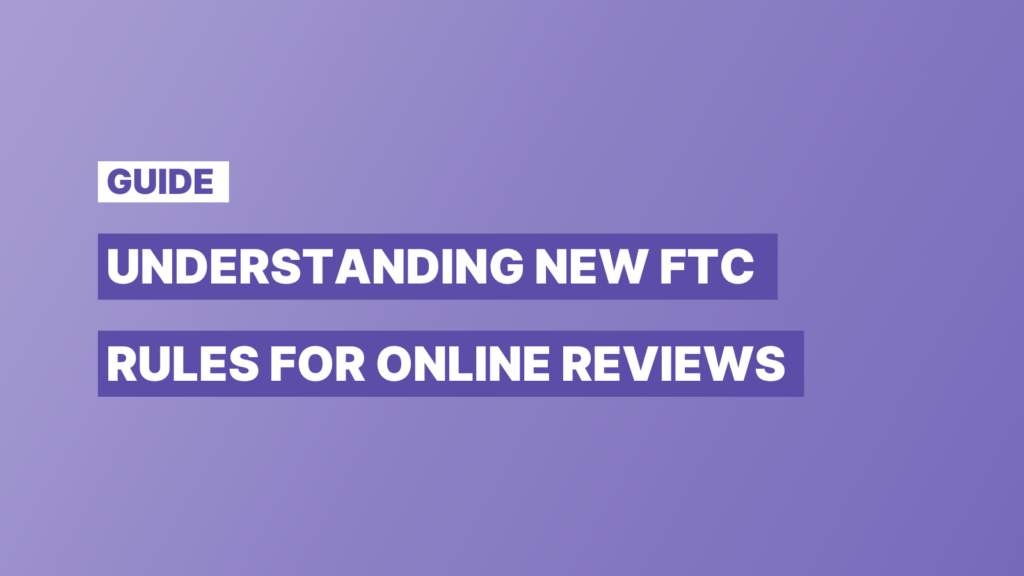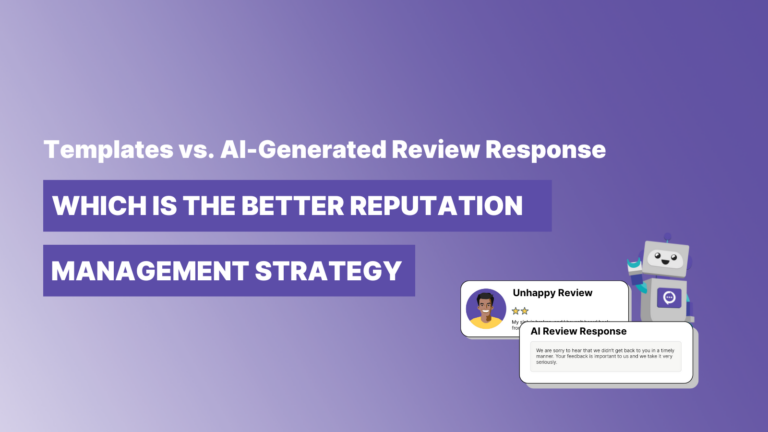Social proof is impacting decision making more than ever. And when it comes to finding a safe, comfortable place to call home, renters want to know that what they’re reading online about your community is true.
We’ve all been burned by a dishonest review at some point. And it’s your job as property management teams to ensure that your future residents don’t feel that, too.
This month the Federal Trade Commission’s (FTC) new rules around fake reviews and testimonials will go into effect, making it clear that AI-generated, incentivized, or dishonest review practices are prohibited. For apartment renters, these new changes will make it easier to navigate review sites without having to weed through fake comments—but there are a few new guidelines that could disrupt some common reputation management practices across the multifamily industry.
Here’s what you need to know about the new FTC rules on online reviews, and how it may impact your reputation management strategy.
What is the Federal Trade Commission?
The Federal Trade Commission is a government agency responsible for protecting consumers and promoting competition in the United States. This department oversees industries to prevent deceptive, unfair, and fraudulent business practices.
The latest ruling by the FTC in regards to online reviews and endorsements is meant to ensure that consumers can trust user-generated content on review sites, and can also freely submit their honest opinion without fear of retaliation or suppression.
What are the new FTC regulations for online reviews and testimonials?
The new regulations are meant to provide clearer guidelines on what constitutes a “fair and transparent review or endorsement,” according to the FTC. Obvious deceptive practices like fabricating or purchasing fake reviews are some of the top issues addressed by the new regulations. But there are a few more common practices that the FTC has prohibited, claiming they distort the reality of the customer experience. These include:
Insider reviews
Reviews and testimonials from company insiders, employees, and their immediate relatives without clearly identifying their connection to the business are prohibited.
Example: A leasing agent leaving a 5-star review on their property’s Google Business Profile page. Even if the leasing agent lives in the community and is leaving a genuine review, it is considered a violation of the new FTC rules if they do not disclose their connection to the business.
Alternative: A leasing agent leaves a 5-star review on their property’s Google Business Profile page, clearly acknowledges their employment, and describes their genuine experience living in the community.
Incentivizing reviews
Businesses cannot offer compensation or other incentives for reviews or testimonials, whether positive or negative.
Example: Offering gift cards or a discount on rent in exchange for a positive review. Other incentives such as sweepstakes, rewards programs, or other perks may also be considered a violation.
Alternative: Asking residents to share their experience in a review—60% of residents would post a review if asked, no incentive required.
Review suppression
Businesses cannot use threats or intimidation to suppress negative reviews, and may not feature or highlight favorable reviews in a way that distorts or suppresses certain consumer feedback.
Example: Threatening a resident with unjustified legal action in an attempt to get the negative review taken down or changed.
Alternative: Sending out resident satisfaction surveys to fix issues before they become negative reviews. You’re allowed to encourage reviews that you think might be good— but you cannot suppress reviews you think might be bad.
How do the new FTC rules impact my apartment community?
The new FTC regulations require property management teams to be more cognizant of their reputation strategy to ensure that their community reviews reflect genuine resident experiences. These changes encourage communities to avoid a few previously common reputation management practices, such as incentivizing reviews, resident rewards programs, employee-generated review content, or selective review solicitation.
These new rules go into effect on October 21, 2024, and businesses can face significant civil penalties of more than $50,000 per violation.
For apartment communities, this shift will likely increase the number of authentic reviews—both positive and negative—and create a more accurate representation of the resident experience. While these new regulations could temporarily reduce your star rating on certain review sites, it’s important to remember that reputation management has always been about strengthening trust and transparency within your community.
How can property management teams navigate these new rules without negatively impacting community reputation?
Focus on fostering open communication and leveraging resident feedback as a tool for continuous improvement. Here’s how:
- Respond to every review—especially the negative ones: Demonstrating a commitment to addressing residents’ concerns shows prospects that your community values feedback and is dedicated to resolving issues.
- Use feedback to flex your customer service skills: Responding to every review is important, but what you say is what actually makes a difference. Ensure that each response is unique, genuine, and helpful. When it comes to negative reviews, treat them as an opportunity to showcase your team’s responsiveness and problem-solving abilities.
- Turn feedback into positive change for your community: Use reviews as a source of insight for identifying areas where you can enhance your community offerings or address issues.
- Ask your residents for reviews more frequently: A steady flow of genuine reviews (whether positive or negative) can help improve your Google Business Profile ranking. Additionally, a wider variety of reviews can increase consumer trust.
- Train your team on the new FTC guidelines: Understanding the new guidelines and following best practices for reputation management is imperative to protect your property from possible liability.
How can Respage help?
Our platform offers tools that empower property management teams to monitor, respond to, and improve their community’s reputation effectively and transparently. Here’s how:
- Review monitoring: The Respage Reputation Management dashboard continuously tracks reviews across the most popular apartment review sites, and allows your team to post a response promptly using a single sign-on dashboard.
- Customizable or AI-generated response options: With Respage your team can choose the response strategy that works best for them. Whether that be manually writing review responses, using templates, leveraging AI, or passing the baton to our full-service reputation management team, we’re here to make sure every review is handled with care.
- Resident surveys & feedback: Respage offers solutions to help you solve issues before they turn into negative reviews. By conducting periodic resident satisfaction surveys, your team will gain a better understanding of your resident’s needs, identify areas of improvement, and resolve concerns internally.
- Review Booster: We have tools that help you automate review requests from residents, helping your property achieve a steady stream of authentic reviews to your Google Business Profile, and other popular review sites.
- Comprehensive reporting & insights: Our Reputation Management dashboard provides detailed reporting on review trends and sentiment analysis, giving your team an at-a-glance view of your community reputation, and allows them to dive deeper into resident feedback to guide improvements, customer service, or other key areas that impact resident satisfaction.
- Training & compliance: To help your team better understand the new FTC guidelines and all multifamily regulations and Fair Housing practices, our Know It All AI Knowledge Base provides your team with quick access to the answers and resources needed to ensure compliance.
By using Respage’s reputation management tools, property teams can not only stay compliant with the latest regulations, but also foster trust, transparency, and genuine connections with current and prospective residents.
Interested in learning how our all-in-one AI leasing, marketing & operations platform can improve your community reputation, and navigate new guidelines? Click here to speak with one of our multifamily experts.






